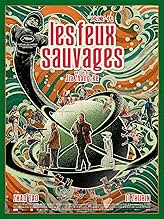Una mujer china vive para sí misma en silencio y celebra la próspera Belle Epoque con canciones y bailes.Una mujer china vive para sí misma en silencio y celebra la próspera Belle Epoque con canciones y bailes.Una mujer china vive para sí misma en silencio y celebra la próspera Belle Epoque con canciones y bailes.
- Dirección
- Guionistas
- Elenco
- Premios
- 7 premios ganados y 15 nominaciones en total
- Dirección
- Guionistas
- Todo el elenco y el equipo
- Producción, taquilla y más en IMDbPro
Opiniones destacadas
What I like about Jia Zhangke is that his works of Chinese cinema is highly interesting and something that feels so different to any other filmmakers in China. In many ways, using strange digital camera approaches, approaches on themes, the music, the characters and setting. This movie feels like a statement of his career, in a documentary and fiction fashion, it's a mesmerizing experience.
Using archive footage and blending both non-linear fiction and non-fiction, Zhangke presents a melancholic and avant-garde narrative and atmosphere that is filled with wonderful presentations and themes explored. Presenting characters, performances, music, and dialogue that feels realistic and almost as if you are observing the daily lives of an individual and nature of human beings.
Zhao Tao continues to shine with her natural performance and language with each scene she is displayed on, the soundtrack choices are interesting, and the whole fiction vs nonfiction scenario, while it will put off many viewers, I found it to be interesting and a great experiment of a story.
I don't suggest this as the first movie to watch for Jia Zhangke though, but I say it's amazing.
Using archive footage and blending both non-linear fiction and non-fiction, Zhangke presents a melancholic and avant-garde narrative and atmosphere that is filled with wonderful presentations and themes explored. Presenting characters, performances, music, and dialogue that feels realistic and almost as if you are observing the daily lives of an individual and nature of human beings.
Zhao Tao continues to shine with her natural performance and language with each scene she is displayed on, the soundtrack choices are interesting, and the whole fiction vs nonfiction scenario, while it will put off many viewers, I found it to be interesting and a great experiment of a story.
I don't suggest this as the first movie to watch for Jia Zhangke though, but I say it's amazing.
This one is the real deal; our esteemed director (all of his projects are foremost "director's films") is one of the greats whom you can discuss in the same breath as Vigo and Varda without puffery.
Jia has a tremendous feel for the Chinese people and is able to capture the textures and rhythms of life there like few others I know. It's this humanity and curiosity, combined with incisive wit and subtle indictment of hypocrisy, that allow him to sidestep censorship of politicized content.
This movie could have been a slight and indulgent scrapbook, but the cast and creative teams--working over an extended schedule to make 'Boyhood' blush--keep the whole thing pitch perfect. Like that earlier milestone film, it's a movie almost without any big moments... and yet there is a vast catharsis that fills in during its latter half.
By the time it gets to the last shot, which I now count among my favorite final shots in cinema history, it achieves a sweeping and yet deeply personal sense of determination in the face of the unknown future we all face. I recommend you see it with a lot of people at a cinema.
Jia has a tremendous feel for the Chinese people and is able to capture the textures and rhythms of life there like few others I know. It's this humanity and curiosity, combined with incisive wit and subtle indictment of hypocrisy, that allow him to sidestep censorship of politicized content.
This movie could have been a slight and indulgent scrapbook, but the cast and creative teams--working over an extended schedule to make 'Boyhood' blush--keep the whole thing pitch perfect. Like that earlier milestone film, it's a movie almost without any big moments... and yet there is a vast catharsis that fills in during its latter half.
By the time it gets to the last shot, which I now count among my favorite final shots in cinema history, it achieves a sweeping and yet deeply personal sense of determination in the face of the unknown future we all face. I recommend you see it with a lot of people at a cinema.
Have you ever bought an album by a band and find that, rather than new material, it's some old B-sides, remixes and a couple of new songs for added value? Of course you have, if you're over thirty-five, that is. Jia Zhang-ke's "Caught by the Tides" is in many ways just that. But in doing so, it does make a statement about his career, and indeed the changing face of the world around him.
Qiao Qiao (Zhao Tao) shares a romance with Guao Bin (Zhubin Li), but he moves on, with Qiao Qiao trailing in his wake. Over the years, and across the country, she follows him. But on reaching her destination, maybe what she's been wanting isn't for her.
But in reality, the plot is irrelevant, as much of this has already been written and filmed over the years; it has now just been repurposed. Outtakes from the likes of "Unknown Pleasures" (2002), "Still Life" (2006) and "Mountains May Depart" (2015), if I remember correctly. This allows to realistically show the two leads over time, and their unequal ageing. Scenes are, therefore, different, but very familiar, in what serves as something of a retrospective for Jia's work, in a more direct and better-executed way than Takeshi Kitano attempted with "Takeshis'" (2005).
The problem with creating a film in this way is that while it's perfectly serviceable as a narrative film, shoehorning in what you already have makes this feel a little awkward in terms of flow. It feels more a series of vignettes than a well-constructed work. Having seen many of the films the outtakes are from serves to remind you of the original scenario, and so doesn't quite feel like a single story, but various stories stuck together.
But there are some nice coincidences that materialise and allow Jia's message to come across. Text messaging on an old Nokia become TikTok videos on the latest smart phone. Jia is very tongue-in-cheek with his look at technology. TikTok stardom serves more for cheap advertising than actual fame and fortune; and service robots can be easily confused with simple questioning. Technology has played an interesting role in shaping the nature of human relationships, especially over the past twenty years.
Knowing Jia's work, you will instantly recognise what is going on here. But if coming to his work fresh, this may seem like a slightly strange film that doesn't quite tie together nicely enough. Some scenes don't seem to really fit; more added in as they were available.
So, this may require some background work for the uninitiated, and is one more for long-term fans. Though they might feel they are watching "Still Life" again. Has life moved on in the past eighteen years?
Politic1983.home.blog.
Qiao Qiao (Zhao Tao) shares a romance with Guao Bin (Zhubin Li), but he moves on, with Qiao Qiao trailing in his wake. Over the years, and across the country, she follows him. But on reaching her destination, maybe what she's been wanting isn't for her.
But in reality, the plot is irrelevant, as much of this has already been written and filmed over the years; it has now just been repurposed. Outtakes from the likes of "Unknown Pleasures" (2002), "Still Life" (2006) and "Mountains May Depart" (2015), if I remember correctly. This allows to realistically show the two leads over time, and their unequal ageing. Scenes are, therefore, different, but very familiar, in what serves as something of a retrospective for Jia's work, in a more direct and better-executed way than Takeshi Kitano attempted with "Takeshis'" (2005).
The problem with creating a film in this way is that while it's perfectly serviceable as a narrative film, shoehorning in what you already have makes this feel a little awkward in terms of flow. It feels more a series of vignettes than a well-constructed work. Having seen many of the films the outtakes are from serves to remind you of the original scenario, and so doesn't quite feel like a single story, but various stories stuck together.
But there are some nice coincidences that materialise and allow Jia's message to come across. Text messaging on an old Nokia become TikTok videos on the latest smart phone. Jia is very tongue-in-cheek with his look at technology. TikTok stardom serves more for cheap advertising than actual fame and fortune; and service robots can be easily confused with simple questioning. Technology has played an interesting role in shaping the nature of human relationships, especially over the past twenty years.
Knowing Jia's work, you will instantly recognise what is going on here. But if coming to his work fresh, this may seem like a slightly strange film that doesn't quite tie together nicely enough. Some scenes don't seem to really fit; more added in as they were available.
So, this may require some background work for the uninitiated, and is one more for long-term fans. Though they might feel they are watching "Still Life" again. Has life moved on in the past eighteen years?
Politic1983.home.blog.
I never tell about the plot on my review, you can find it everywhere! I watched this movie without knowing Nothing about it. So i thought "oh he is very clever ,he is using lots of old stock film to make it look like it was shot 20 years ago" and I thought "uhm this movie is way more experimental and artsy compared to his other movies". I watched this movie because I really enjoyed Mountain Might Depart and Ash Is Purest White and A Touch of Sin. And this one feels more like a collections of scenes, different styles all put together. It has somehow a dreaming, floating quality, it feels like a documentary and then it is also fiction, But it works, mostly because Zhao Tao has this magical presence on the screen and you look at her wondering what will she do next. After I finished I went online looking at reviews and discovered it is actually made with material the director shot before. If you are looking at this title it means that you are already open and ready to watch something different from USA mainstream movies. So I would definitely recommend this.
A meditation on love and passing time; a woman searches for her lost lover within the rubble of a deconstructed city as well as her own shattered memory, the Three Gorges Dam consumes cities whole just as time swallows people, women sing and dance in joy and hurt, and dreams surface and submerge again. Lives are changing, and we often don't notice.
Utilizing primarily b-roll and outtakes from previous films, Zhang-ke weaves a cerebral and imaginative tale. While I wish the material was all new and put together with more of a cohesive story in mind, I can't deny that Zhang-ke has a magical and mesmerizing touch in all that he does, even in his wandering. Seen at the Toronto International Film Festival.
Utilizing primarily b-roll and outtakes from previous films, Zhang-ke weaves a cerebral and imaginative tale. While I wish the material was all new and put together with more of a cohesive story in mind, I can't deny that Zhang-ke has a magical and mesmerizing touch in all that he does, even in his wandering. Seen at the Toronto International Film Festival.
¿Sabías que…?
- TriviaJia Zhang-ke incorporated footage and outtakes from previous films he had directed into this one, including Ren xiao yao (2002), San xia hao ren (2006), and Jiang hu er nü (2018). About 10 scenes from this film had previously appeared in the aforementioned movies.
Selecciones populares
Inicia sesión para calificar y agrega a la lista de videos para obtener recomendaciones personalizadas
Detalles
Taquilla
- Total en EE. UU. y Canadá
- USD 224,447
- Fin de semana de estreno en EE. UU. y Canadá
- USD 32,093
- 11 may 2025
- Total a nivel mundial
- USD 233,326
- Tiempo de ejecución1 hora 51 minutos
- Color
- Mezcla de sonido
- Relación de aspecto
- 1.85 : 1
Contribuir a esta página
Sugiere una edición o agrega el contenido que falta

Principales brechas de datos
What is the Canadian French language plot outline for Caught by the Tides (2024)?
Responda





















